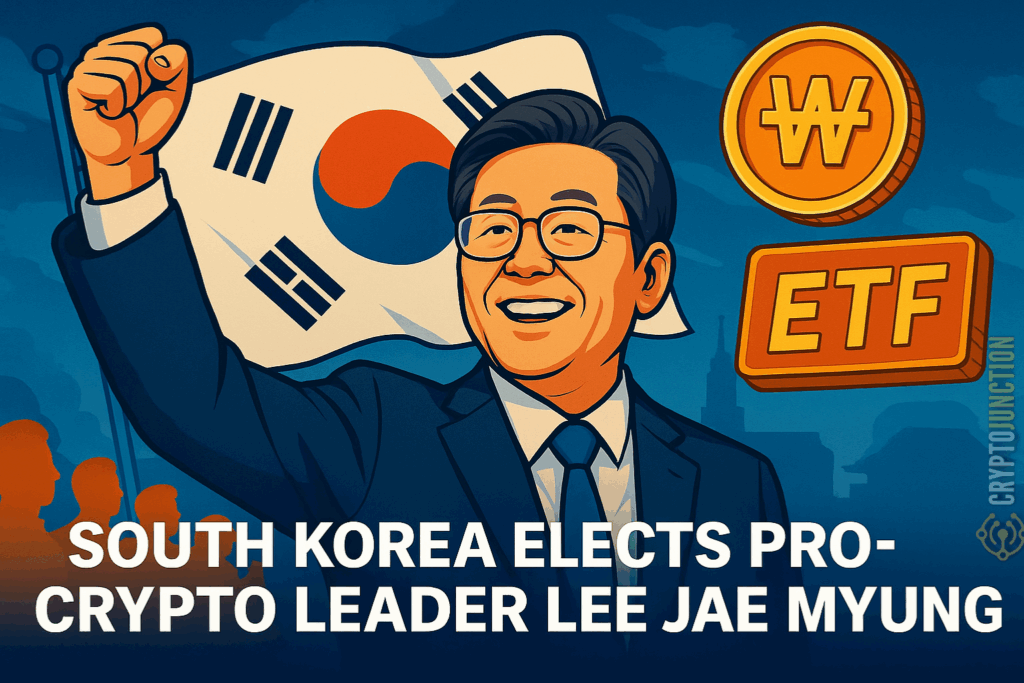South Korea’s digital asset landscape has undergone a historic shift since Lee Jae Myung was elected president. Lee has acted quickly to implement pro-crypto reforms after his party won 49.42% of the vote. This election had the highest turnout since 1997. His administration is focusing on won-pegged stablecoins and cryptocurrency exchange-traded funds (ETFs). It also aims to complete the regulation of digital assets.
Time is of the essence. The impeachment of former President Yoon Suk-yeol created a regulatory void. Under Lee Jae Myung’s direction, the Digital Asset Committee now has a centralized organization. This is under direct presidential supervision, ensuring his vision is fulfilled with precision.
Understanding Lee Jae Myung’s Crypto Blueprint
Lee Jae Myung has made drastic structural changes. These include bringing enforcement actions under the recently passed Virtual Asset User Protection Act. Additionally, he has postponed the crypto capital gains tax until 2027. The law requires real-time transaction monitoring and severe penalties for market manipulation. Moreover, more than 80% of user funds must be kept in cold storage.
Lee’s roadmap prioritizes institutional control over Yoon’s deregulation-focused approach. In terms of both policy depth and regulatory foresight, Lee Jae Myung’s administration stands out. It does so with its proposed two-phase legislative framework and regulated entry points for corporate players. It is clear that Lee Jae Myung aims to assert stronger regulatory measures.
Promotes Etf And Stablecoin Ecosystems
The president also intends to change South Korea’s place in the global cryptocurrency scene. His suggested ETF framework addresses intricate problems such as synchronised global standards and SEC-grade custody. ETFs for Bitcoin and Ethereum have the potential to boost institutional investor growth and lower volatility if they are successful.
Regarding stablecoins, Lee Jae Myung wants to lessen the $40.8 billion in cryptocurrency capital outflows from the nation. The Bank of Korea is working together to test QR code payment integrations. It also aims to issue won-pegged stablecoins. Reducing reliance on USDT/USDC, which currently controls 89% of domestic trading pairs, is a goal Lee Jae Myung strongly champions.
New Regulations To Implement Institutional Control
Corporate crypto participation is now permitted under new regulations, but it will be closely monitored. Transactions must be converted to won right away, and only the top 20 tokens are allowed. In addition to nonprofit audit requirements, the FSC’s triple-verification AML system incorporates biometric checks.
More than 14,000 nonprofit organisations have been approved to accept cryptocurrency donations since these changes. Under oversight, 89 companies have submitted applications for virtual asset licenses. With institutional holdings totalling $2.1 billion, corporate interest is also increasing.
Organizations have followed 92% of cold storage mandates, securing $19.8 billion offline. Still, Lee’s Digital Asset Committee must address insurance and verification gaps across exchanges. This is to fulfill Lee Jae Myung’s vision of comprehensive regulatory systems.

